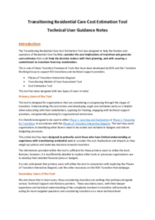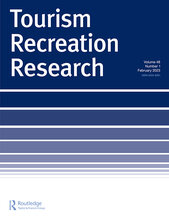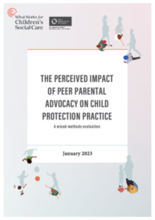Displaying 591 - 600 of 4424
This Toolkit is designed to support parents, caregivers and educators to nurture the spiritual development of children in the early years. It provides critical tools and resources to better equip all those who would assist these key adults in children’s lives to create safe, loving, violence-free and respectful environments, strengthen their positive relationships with children, and provide empowering experiences that allow children to develop holistically.
Orphanage volunteers may have the best of intentions - but they may unwittingly be doing more harm than good, as one ex-volunteer discovered.
One of our partner organisations and creator of the orphanage volunteering alternative Rok Kern programme, Children in Families was invited to speak about volunteering at an International School in Phnom Penh.
When Eliza was a teenager, her dream was to volunteer in orphanages all over the world. So when she turned 18, she packed her bags and headed to Guatemala to volunteer in an orphanage.
The debate around the pros and cons of international volunteering has been raging for the past decade. With hundreds of articles, blog posts and exposés out there, both in favour and against volunteering overseas, it is difficult to know what to think or where to begin when deciding what program is best to give your time and money. We have pulled together some advice on the main things you need to look out for when researching voluntary work programs, as well as some examples of the types of activities you might like to consider - especially as alternatives for orphanage volunteering placements.
Throughout the Transitioning Residential Care Cost Estimation Tool, comments and tool tips have been provided for those Primary Users and for the basic use of the tool itself. This guidance provides additional context and explanation for Technical Users.
This module outlines 3 hours (180 minutes) of training activities and materials related to psychosocial support (PSS) and social and emotional learning (SEL) in emergency contexts.
This global study examined 106,979 tweets posted by 34,370 unique users from 2010 to 2019 to understand the sentiment of those indirectly involved in orphanage tourism and its change over time.
This report presents the findings from a mixed-methods evaluation of peer parental advocacy (PPA) in the London Borough of Camden.



